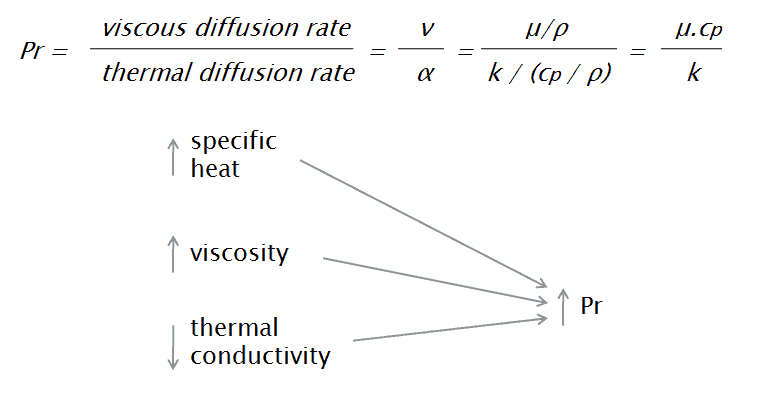Hello,
I am here to ask a simple, basic question about heat exchangers which is puzzling me.
Whenever I look for approximated values for convective heat transfer coefficients, I just find tables depending of phase of matter (liquid/gas), type of flow (laminar/turbulent) or type of gas (monatomic or not).
But I never find any parameter associated to the pressure or density of the gas.
My understanding is that air at 100 bars should get much higher convective heat transfer that air at 1 bar, as the number of molecules hitting the solid barrier is much higher.
Am I missing something? Are there any formulas related to convective heat transfer coefficient which take gas density or pressure as a parameter?
I am here to ask a simple, basic question about heat exchangers which is puzzling me.
Whenever I look for approximated values for convective heat transfer coefficients, I just find tables depending of phase of matter (liquid/gas), type of flow (laminar/turbulent) or type of gas (monatomic or not).
But I never find any parameter associated to the pressure or density of the gas.
My understanding is that air at 100 bars should get much higher convective heat transfer that air at 1 bar, as the number of molecules hitting the solid barrier is much higher.
Am I missing something? Are there any formulas related to convective heat transfer coefficient which take gas density or pressure as a parameter?

